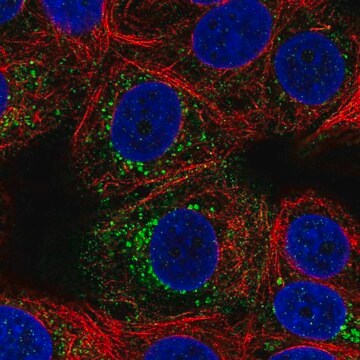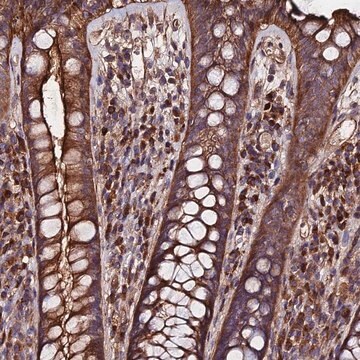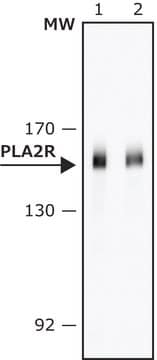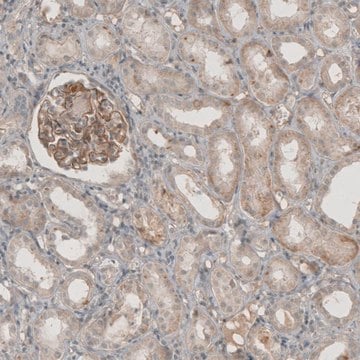SAB4200343
Anti-MLL2 antibody, Mouse monoclonal
clone MLL2-A, purified from hybridoma cell culture
Sinónimos:
Monoclonal Anti-MLL2 antibody produced in mouse, Anti-AAD10, Anti-ALL1-related protein, Anti-ALR, Anti-CAGL114, Anti-Histone-lysine N-methyltransferase, Anti-KMS, Anti-KMT2B, Anti-KMT2D, Anti-Kabuki make-up syndrome, Anti-Kabuki mental retardation syndrome, Anti-MLL4, Anti-Myeloid/lymphoid or mixed-lineage leukemia 2, Anti-TNRC21
About This Item
Productos recomendados
biological source
mouse
Quality Level
conjugate
unconjugated
antibody form
purified from hybridoma cell culture
antibody product type
primary antibodies
clone
MLL2-A, monoclonal
form
buffered aqueous solution
mol wt
antigen ~17 kDa
species reactivity
human
concentration
~1.0 mg/mL
technique(s)
indirect immunofluorescence: suitable
western blot: 0.2-0.5 μg/mL using using human MLL2 partial fusion protein (immunogen)
isotype
IgG1
shipped in
dry ice
storage temp.
−20°C
target post-translational modification
unmodified
Gene Information
human ... MLL2(8085)
¿Está buscando productos similares? Visita Guía de comparación de productos
General description
Immunogen
Application
Biochem/physiol Actions
Physical form
Disclaimer
¿No encuentra el producto adecuado?
Pruebe nuestro Herramienta de selección de productos.
Storage Class
12 - Non Combustible Liquids
flash_point_f
Not applicable
flash_point_c
Not applicable
Certificados de análisis (COA)
Busque Certificados de análisis (COA) introduciendo el número de lote del producto. Los números de lote se encuentran en la etiqueta del producto después de las palabras «Lot» o «Batch»
¿Ya tiene este producto?
Encuentre la documentación para los productos que ha comprado recientemente en la Biblioteca de documentos.
Nuestro equipo de científicos tiene experiencia en todas las áreas de investigación: Ciencias de la vida, Ciencia de los materiales, Síntesis química, Cromatografía, Analítica y muchas otras.
Póngase en contacto con el Servicio técnico








